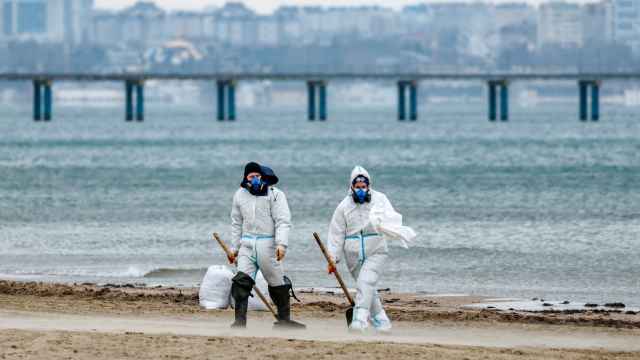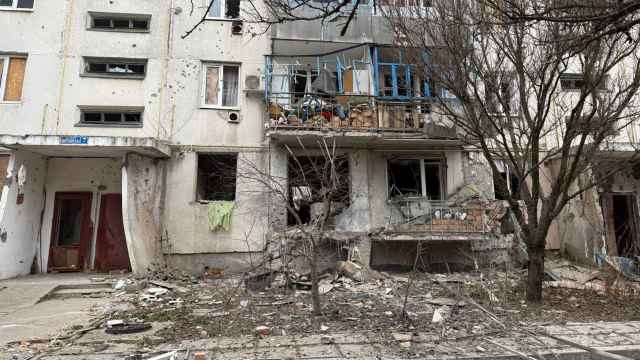The gymnast whose career record for most Olympic medals was broken by Michael Phelps said she doesn’t mind that the American swimmer has surpassed her mark.
Larisa Latynina, who won 18 medals in the 1956, 1960 and 1964 Olympics while competing for the Soviet Union, was at the Aquatics Centre in London on Tuesday to watch Phelps, and she said she was happy for him.
“I saw him swim, and I saw my record swim away,” she said in a telephone interview.
"He's very talented — no doubt about that," the 77-year-old Latynina added.
Phelps swam into history with a gold-medal-winning performance in the 4x200-meter freestyle relay Tuesday night, earning the 19th Olympic medal of his brilliant career and the 15th gold.
Latynina competed in an era when gymnastics was more about femininity and maturity, rather than teenage acrobatics, which has dominated the sport for decades.
It's not unusual for gymnasts today to retire at 18, while Latynina made her debut in international competition at the age of 19. She was four months pregnant with her daughter, Tatyana, while competing at the world championships in 1958.
Latynina won her last medal at the Tokyo Games in 1964 when she was nearly 30 — unusually old for gymnasts.
Three-time Olympic medalist Nadia Comaneci, described as the best female gymnast in history, retired in 1981 when she was 20.
"We knew about her because we are in the same sport, and you always pay attention to the history," Comaneci said in an interview. "We grew up watching — I didn't compete with her, but I watched her performances."
Latynina's fame peaked at a time when television in the Soviet Union was practically nonexistent. Although she is revered and respected by the gymnastics community at home and abroad, she is not as visible as Comaneci and younger gymnasts.
Comaneci said Latynina was determined "to be the best," although gymnastics was a very different sport in that era.
"They were actually ladies competing in gymnastics. And you look back at the equipment, it was different then," Comaneci said. "I don't want to say primitive, but that's what it was. The beam was wood, it was not very good for your heels."
Latynina came from a background in ballet, raised by a single mother amid World War II, because her father was killed in the Battle of Stalingrad in 1943 when she was 9. She told Rossia state television in 2010 that her mother swept floors, washed dishes and worked as a night guard to pay for her dance classes in her Ukrainian hometown of Kherson. But Latynina had to give up ballet when her teacher left town, and she turned instead to gymnastics.
Because Latynina's success was so long ago, people outside the sport may have forgotten what she accomplished.
"This is the first time people worldwide are acknowledging her in such a wonderful way for what she's done," Comaneci said. "People tend to forget things. Eighteen medals — that's a lot."
Latynina said that she doesn't regret that her record was broken, because Phelps deserves it.
"He did a great job. As an athlete, I could only be happy to see that there is such a talented athlete who was able to break that record," she said.
Latynina still owns several records and is the only woman to have won nine Olympic gold medals.
Sports Minister Vitaly Mutko told the news agency R-Sport that Latynina "will still remain one of the greatest athletes in history."
A Message from The Moscow Times:
Dear readers,
We are facing unprecedented challenges. Russia's Prosecutor General's Office has designated The Moscow Times as an "undesirable" organization, criminalizing our work and putting our staff at risk of prosecution. This follows our earlier unjust labeling as a "foreign agent."
These actions are direct attempts to silence independent journalism in Russia. The authorities claim our work "discredits the decisions of the Russian leadership." We see things differently: we strive to provide accurate, unbiased reporting on Russia.
We, the journalists of The Moscow Times, refuse to be silenced. But to continue our work, we need your help.
Your support, no matter how small, makes a world of difference. If you can, please support us monthly starting from just $2. It's quick to set up, and every contribution makes a significant impact.
By supporting The Moscow Times, you're defending open, independent journalism in the face of repression. Thank you for standing with us.
Remind me later.





